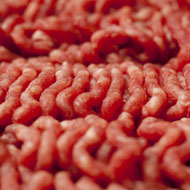Meat may be labelled "stunned" or "non-stunned"

Currently, meat from animals that were not pre-stunned is entering the food chain unlabelled.
Environment minister George Eustice is said to be giving "serious consideration" to labelling meat and fish as "stunned" or "non-stunned" to indicate the method of slaughter.
The news, which was reported in the Daily Telegraph last week, has been welcomed by the BVA, whose e-petition calling for a ban on non-stun slaughter in the UK has now reached nearly 80,000 signatures.
Under EU law, all animals must be stunned before slaughter, rendering them insensible to pain. An exception to this rule allows slaughter without pre-stunning in certain religious communities. Currently, meat from animals that were not pre-stunned is entering the food chain unlabelled.
Responding to the Daily Telegraph's story, BVA's president John Blackwell said: "We are still campaigning vigorously to end non-stun slaughter in the UK, but we believe this is a step in the right direction for consumers who care about the welfare of animals when they purchase meat and fish."
Earlier this year, some MPs called for compulsory labelling of meat as "Halal" or "Kosher". However, the BVA urged party leaders to reject these calls, saying it will do nothing to improve animal welfare and could fuel prejudice. Nearly 90 per cent of the UK's Halal meat is stunned before slaughter.
Mr Blackwell said: "It is extremely important that the issue of welfare at slaughter is not hijacked by other agendas and the clear, simple labelling being suggested by George Eustice keeps the sole issue of animal welfare to the fore."



 The latest
The latest